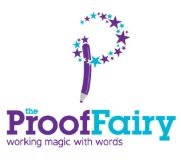We all have a book in us, or so the saying goes… Whether you’ve put “write a book” on your goals for this year, you’re partway through your first draft or you’ve nearly finished and are wondering what to do next, you’ll find something to help you in my list of 10 top tips for aspiring writers.

1. Choose a topic you’re both passionate about and knowledgeable in
Writing a book is not easy – it takes time, effort and dedication, and many people give up before their book ever sees the light of day. Sometimes this is because life takes over, but often it’s simply because they lose interest in what they’re writing. So the first of my tips for aspiring writers is to choose a topic you’re passionate about, because it makes the writing process more enjoyable and less of a chore, and your passion will come across in your writing, keeping the reader engaged. And writing about something you’re knowledgeable about makes it easier to get your words down, because you already know almost everything you want to say!
2. Work out WHO you are writing for – and WHY
Once you’ve chosen a topic, you need to work out who you’re writing for. Having a clear picture of your ideal reader means you can speak directly to them. But what is it they want to hear? Why did they pick up your book in the first place? Those are really important questions you need to answer before you start writing. By working out who your reader is and why they are reading your book, you can tailor your content to give them exactly what they want. And if you’re not sure what they want, ask them! A little market research goes a long way.
3. Niche it down
Never be afraid to get really specific. Here’s an example to demonstrate what I mean. Imagine you’re passionate about trains and you want to write a book about all the great trains you’ve spotted and their history. Yes, there are thousands of fellow trainspotters out there who might buy your book, but there are also over 60,000 books about trains on Amazon. Your favourite trains are diesels… but you’re still competing with over 1,000 other books about diesel trains. So, let’s niche it down. Your favourite diesel ever is the Class 47, so how about you write a book just about Class 47s? Suddenly, your book is one of only 20 or so about your favourite train… and while the market will be smaller, you can bet that every brush basher* searching for “Class 47 diesel” on Amazon will definitely buy your book because they’ll be as passionate about them as you are and they’ll want every book ever published!
*Nickname for fans of the Class 47!

4. Make a plan
Some people are pantsers – they just start writing, with no clear idea of where they’re going, and fly by the seat of their pants. And if you can do that, great! But for the rest of us mere mortals, having a plan makes it much easier to get going with the writing process. Start by brainstorming your topic, then group together what comes up into themes and use those as the skeleton for your chapters. You can stop here now you have an idea of what each chapter is about, or you can go into more detail, highlighting three or four key points to cover in each chapter. If there’s anything you’re not sure about, now is a good time to do some research too.
5. Just write!
Perhaps one of the biggest tips for aspiring writers I can offer is to just get started and get writing! As novelist Jodi Picoult once said, “You can always edit a bad page. You can’t edit a blank page,” and she’s right. Find a regular slot in your diary and make that your writing time. Set a timer for 30 minutes or an hour and bash out as much as you can in that time. Don’t worry too much about the quality of your writing, or the spelling or grammar. You can always go back and edit it later (see tip 7!).

6. Tell people you’re writing a book. NO, REALLY tell people!
Writing a book makes you vulnerable. Whether you’re writing your life story or revealing your passion for Class 47s, there’s something about putting it down on paper that feels like you’re opening up a very personal part of yourself to the public. And lots of authors don’t like to tell anyone they’re writing a book until that book is finished and perfected. They don’t want to share what they’re doing in case they fail. And I get that, I really do. If you get stuck, there’s no reason for you to carry on, because who’s going to know that you ever started writing a book anyway?
And I think that’s why many people do give up – BECAUSE they haven’t told anyone. There’s no accountability, no external motivation to get the book written, so it’s too easy to give up when the going gets tough! Instead, my advice would be to tell people what you’re doing, right from the outset. Tell family and friends, because they will keep you accountable (“How’s the book going?”) and support you along the way. And tell your ideal readers too – the more buzz you create about your book, the more people will buy it on launch day and the better that will be for sales over the book’s lifetime.
7. Don’t edit along the way
Writing is a creative activity; editing is more analytical. And the brain doesn’t like being forced to switch between the two modes. You know when writers talk about ‘being in flow’ – when the words tumble onto the paper and time passes in a flash? You’ll never experience that if you’re checking every sentence to make sure the commas are in the right place! So write during your writing time, and edit when you’re finished. Some people like to edit each chapter as they complete it; others get to the end of the book, set it aside for a while and then do the editing. Do whatever works for you, but do it separately to the writing process. Same goes for research – if there’s anything you need to check up on, highlight it, carry on writing and do the research later.
8. Use beta readers
I’m always amazed how many authors send their manuscript to me for editing without letting anyone else read it first. I can offer my thoughts alongside tidying up the text, but if I’m not their ideal reader then I’m not going to know if the book ‘works’, if it provides what the reader wants, or even if it makes sense! A carefully selected group of people who closely match your ideal reader will be able to give you feedback on what works, what doesn’t, what they need more of and what can go. Make it clear that the book hasn’t yet been edited but you don’t want to know about typos – you’re only interested in their thoughts on the content. And make sure you send it to beta readers before it goes to your proofreader. You don’t want to pay for proofreading, only to change half the content following the beta feedback and have to pay for proofreading all over again!
9. Professional preparation for publication
Some authors think they can do everything themselves – writing, editing, proofreading, formatting, cover design… And yes, some people can, but most of us can’t. For the reader, a book full of errant apostrophes or wonky formatting detracts from the words and gives them a less than enjoyable experience. Likewise, cover design is a vital part of marketing, and homemade covers stand out a mile on the Amazon sales page. After all the effort you’ve put into your writing, you owe it to yourself to invest a little in getting professional help with preparing your book for publication.
10. Promote the hell out of it!
The last of my tips for aspiring writers is about marketing. It never ceases to amaze me how many authors wait until their book is live on Amazon before they think about marketing. Your book is one of a gazillion out there and the chances of anyone finding it by accident are incredibly small, even if you’ve niched right down. Before you’ve even finished the writing you need to be talking about your book in the places where your ideal reader goes, and once it’s finished you want to launch it with a splash. Use social media, go on an author tour, give talks, contact specialist magazines, start a newsletter, speak to local media, look for relevant bricks-and-mortar retailers, make links with connected organisations … There are lots of free and low cost ways to promote your book, so get out there and get marketing!
If you’d like to find out more about how to get your book out of your head, onto paper and into the world, book your free discovery call here.
And for more tips for aspiring writers, you can’t go wrong with reading my book What’s Your Story? Take your non-fiction book from possibility to plan to publication.





